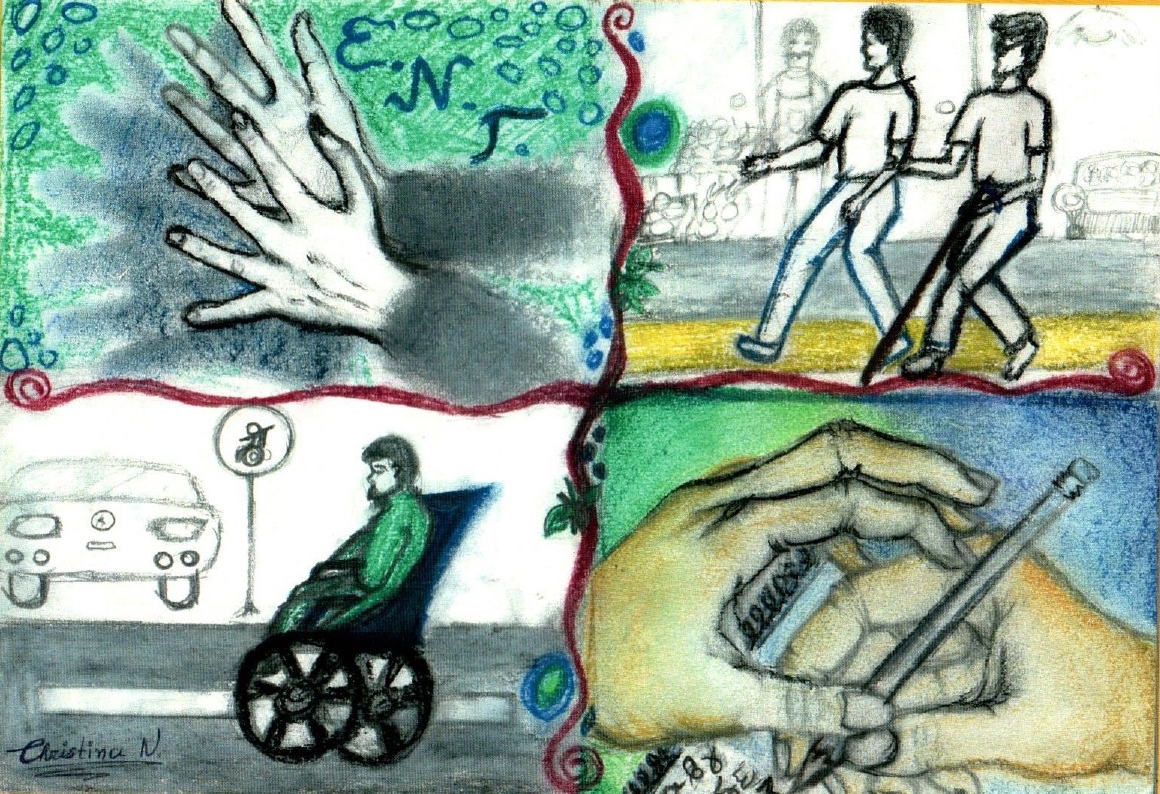Conceptual definitions
Specific Learning Difficulties (SLD) is a generalized term, which refers to a heterogeneous group of problems manifested in the functioning and learning of speech, reading, writing, comprehension and mathematics. They affect the way people of average or higher mental ability process and express incoming information. The above problems are inherent to the person, they are considered to exist due to the dysfunction of the central nervous system and it is possible for them to manifest throughout the person’s life. (Special) learning difficulties are sometimes characterized by a significant difference between the mental ability and the academic performance of the individual. The manifestation of these difficulties varies according to the learning requirements and the environment in which the person is called upon to function and may be limited to a single cognitive area or affect several areas. Specific learning difficulties are addressed through the provision of specialized remedial teaching and the learning and use of compensatory learning strategies.
Typical Difficulties
People who experience SLD face difficulties in one or more of the following areas:
- Spoken and/or written expression.
- Reading comprehension and decoding of written speech.
- Problem solving.
- Highlighting key points while attending lectures and taking notes.
- Calculation of mathematical operations and solving numerical problems.
- Understanding social conventions and situations.
- Effective time management.
- Organization of ideas and key points in written expression.
- Concentration and execution of instructions.
Teaching techniques – Adjustments for teaching staff
A variety of educational approaches and adaptations can improve the learning ability of people with SLD.
During Lectures
- Always provide your slides before the lecture.
- Provide your material from the start of the semester.
- Communicate clearly and concisely the short-term and long-term goals of your lecture.
- Allow the use of a recording of the lecture in case of difficulty for the student to take notes during it.
- Encourage the use of a computer during lectures.
- Use visual organizers (eg diagrams, figures, etc.).
- Use keywords and key points in each of your lectures.
- Provide more time for in-class assignments and exercises for students to check spelling, punctuation, and/or grammar.
- Present instructions and explanations both in writing and orally.
- When possible, discreetly provide personalized assistance that is not necessarily long-lasting.
In-class assignments
- Break down large tasks into smaller tasks that are delivered in parts.
- Give a detailed timetable for the writing and delivery of the assignments.
Assessment/Exams:
- Exams take place in a quiet and distraction-free environment.
- Breaks are provided during the exams.
- Accurate and clear wording of exam questions.
- Use of calculators, spellers, dictionary, text decoder and/or scribe during exams.
- Possibility of an alternative type of examination (e.g. oral examination, both written and oral examination, writing a paper, multiple-choice questions).
- When evaluating students’ writings, give more weight to the content and not so much to the spelling mistakes.
For students with special learning difficulties
- Use of a tape recorder with the teacher’s permission
- Computer use during lectures
- Use a word processor with the ability to check spelling and provide audio feedback.






